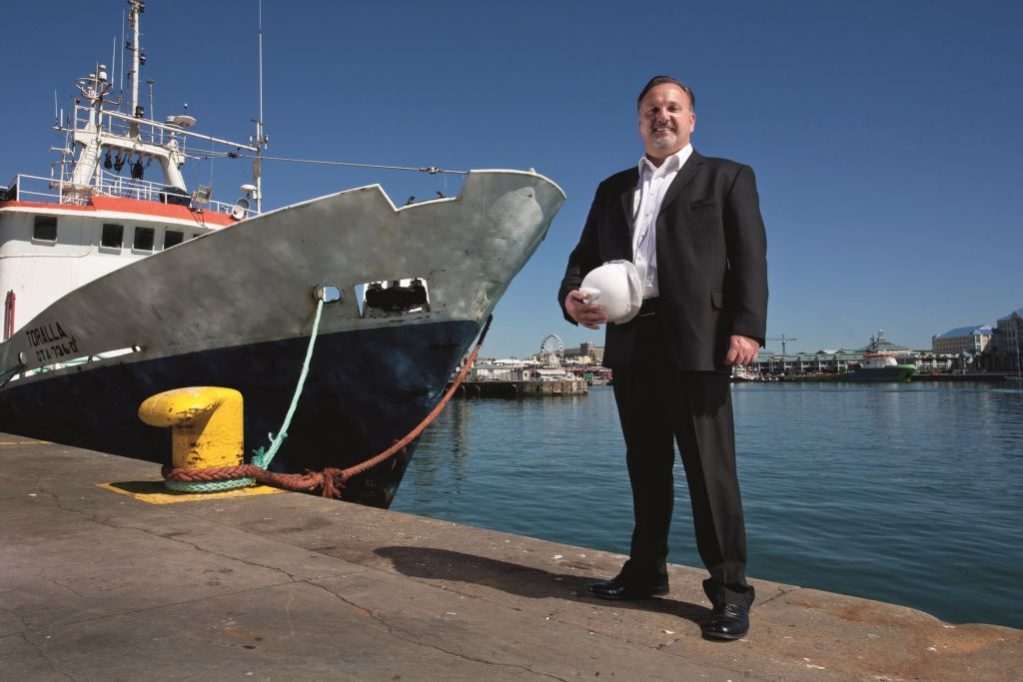As the recipient of a prestigious fishing award, the chief executive officer of the biggest fishing enterprise in South Africa and the driving force behind the leading canned pilchards brand in South Africa, Francois Kuttel is surely deserving of some accolades.
Recently, Oceana Group Limited, of which Kuttel is CEO, was rated the second most empowered company in South Africa.
Kuttel is inspired by Warren Buffett, arguably the greatest investor in the 20th century, and the CEO and largest shareholder of Berkshire Hathaway.
His ability to embrace some ‘Buffettisms’ might have contributed to Kuttel’s rise from virtual obscurity to the CEO of a big company.
Buffett’s emphasis on value addition, knowing his product and investing in people has had a major influence on Kuttle.
The American billionaire says that nobody should invest in a business they do not understand.
“Whether we’re talking about socks or stocks, I like buying quality merchandise when it is marked down,” says Buffett.
He also claims that it’s better to hang out with people better than you.
“Pick out associates whose behavior is better than yours and you’ll drift in that direction,” he said.
Kuttel’s insight into the truths of these ‘Buffettisms’ contributed to his ability to transform Oceana into an industry-leader.
Kuttel’s father, popularly known as Padda Kuttel, left a career as a lawyer to pursue the fishing industry. He purchased a wooden boat and a fishing rod in the early 1960s and started Atlantic Fishing, which became one of South Africa’s most successful fishing industries in the 1980s.
When his family immigrated to the United States, Kuttel was ready to assist his father with an Alaskan fishing venture.
But his father insisted that he attend the University of San Diego to complete his Bachelor of Accountancy degree.
For several years, Kuttel worked in Alaska with the family business, until he took over operations with his brother.
Now well versed in all areas of the fishing industry, including fishing, steering trawlers and processing and packaging, Kuttel returned to South Africa in 1995 to become the managing director of the family-owned businesses Namsea and Namfish.
When the businesses were sold in 2002, he worked extensively with his brother in the United States and commuted between there and South Africa.
His wife, Kimberley, was not keen to move permanently to the United States, so he moved back to South Africa and took up the position of CEO at Irvin and Johnson (I&J) before he became CEO of Oceana in 2009.
Because of Kuttel’s intimate understanding of the fishing industry, he could easily invest time, energy and money into it—true to the ‘Buffettism’ of knowing your investment.
He joined Oceana six months after they had posted a headline increase of just under 60%. The challenge was to keep growing performance, top and bottom.
Kuttel’s ability to aggressively market and grow the Lucky Star brand, was key to the growth.
At the end of 2012, Oceana, with a 65% canned fish market share, mainly through Lucky Star, had its catch quota increased by 10,000 metric tons to 120,000 tons in South Africa. It imports fish from Morocco, Thailand, the United States and Japan.
Sourcing the raw material from these countries allowed Oceana to grow the market substantially. Already the biggest seller of canned fish in South Africa, the company had a 33% jump in full-year earnings at the end of 2012.
Its net income increased from $33.4 million to $44.5 million a year earlier.
Kuttel, again quoting Buffett, says that when you want to grow a product, you must ensure that the fundamentals of good business are in place. Yet, you have to look at the undervalued investments that have scope for improved performances, and unlock that value.
In June, Oceana announced the acquisition of Foodcorp’s fishing rights, which could give the group the resources it needs to increase its presence in Africa. The Foodcorp deal will enable Oceana to lift its total allowable catch (TAC) in pilchard from 14.3% to 25.6%.
This gain was critical for Lucky Star, with Kuttel noting Oceana recently needed to import as much as 65% of its pilchard stock for the canned fish business. Oceana also increased the TAC for anchovy from 16.8% to 24.7% and hake from 4% to 8.8%.
Kuttle was the recent recipient of the Fishing News International’s 2013 Person of the Year award. It was recognition of his business philosophy of investing in people and being pro-active in sea life management.
As chairman of the Responsible Fisheries Alliance, he has played a part in pioneering a successful program to reduce bird fatalities.
When Oceana closed a plant at Lamberts Bay, on South Africa’s west coast, they did not entrench workers, but looked to create economic opportunities for them. They established a French fry facility that could employ more people than the fish processing facility did.
In Lamberts Bay, Oceana doubled its spend on the skills development of black employees from $600,000 in 2010 to more than $1.3 million in 2011, while spend on suppliers, with a turnover below $3.5 million, increased from $17.5 million in 2010 to $42.4 million in 2011.
Kuttel says Oceana has created a very successful empowerment trust.
“All our black employees are beneficiaries of that trust and it could possibly be in excess of R700 million ($70 million) in terms of accrued capital value when that trust unwinds.”
A staunch advocate of investing in people, Kuttel believes this is one of the keys to Oceana’s success.
“I believe if I surround myself with clever people, I look clever,” he says.
